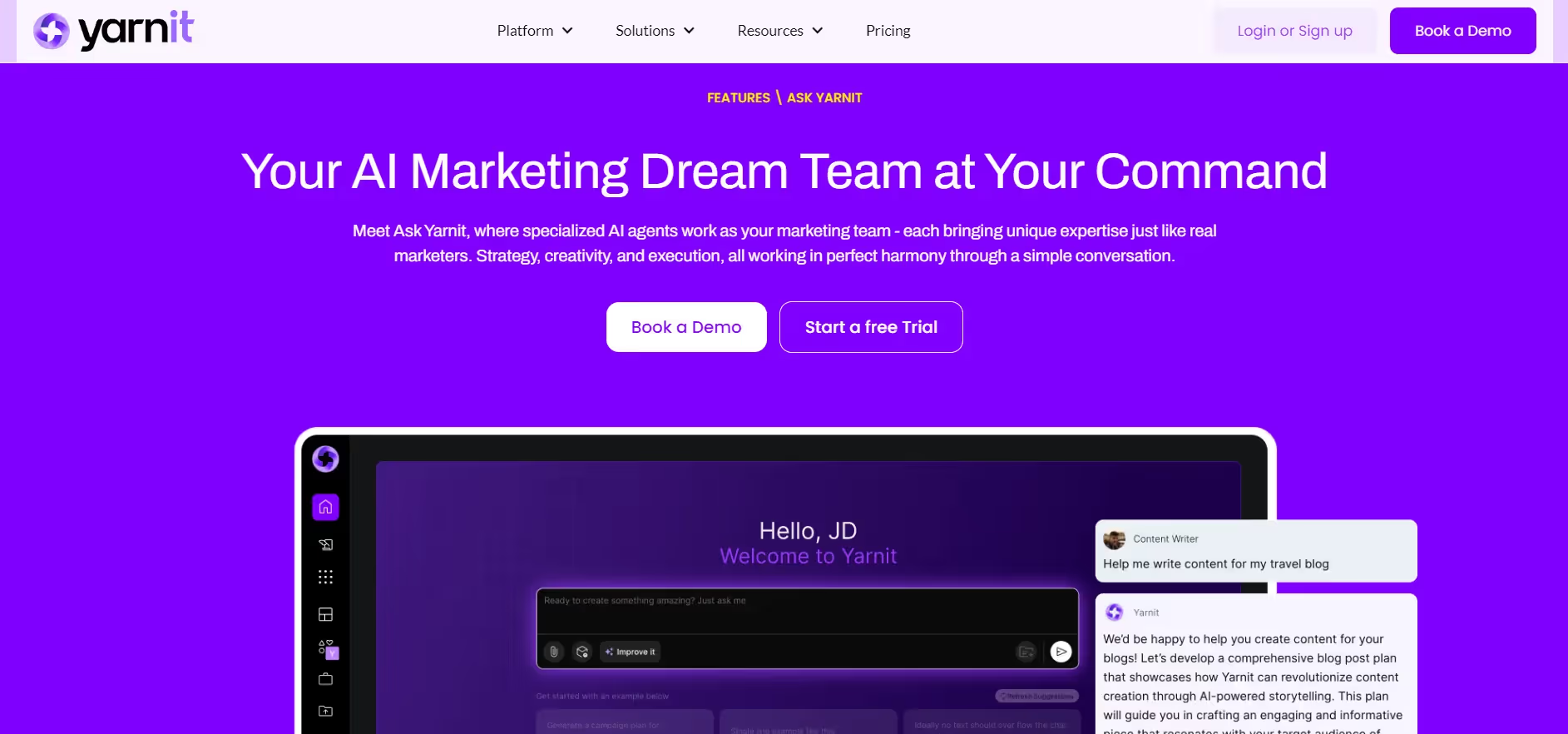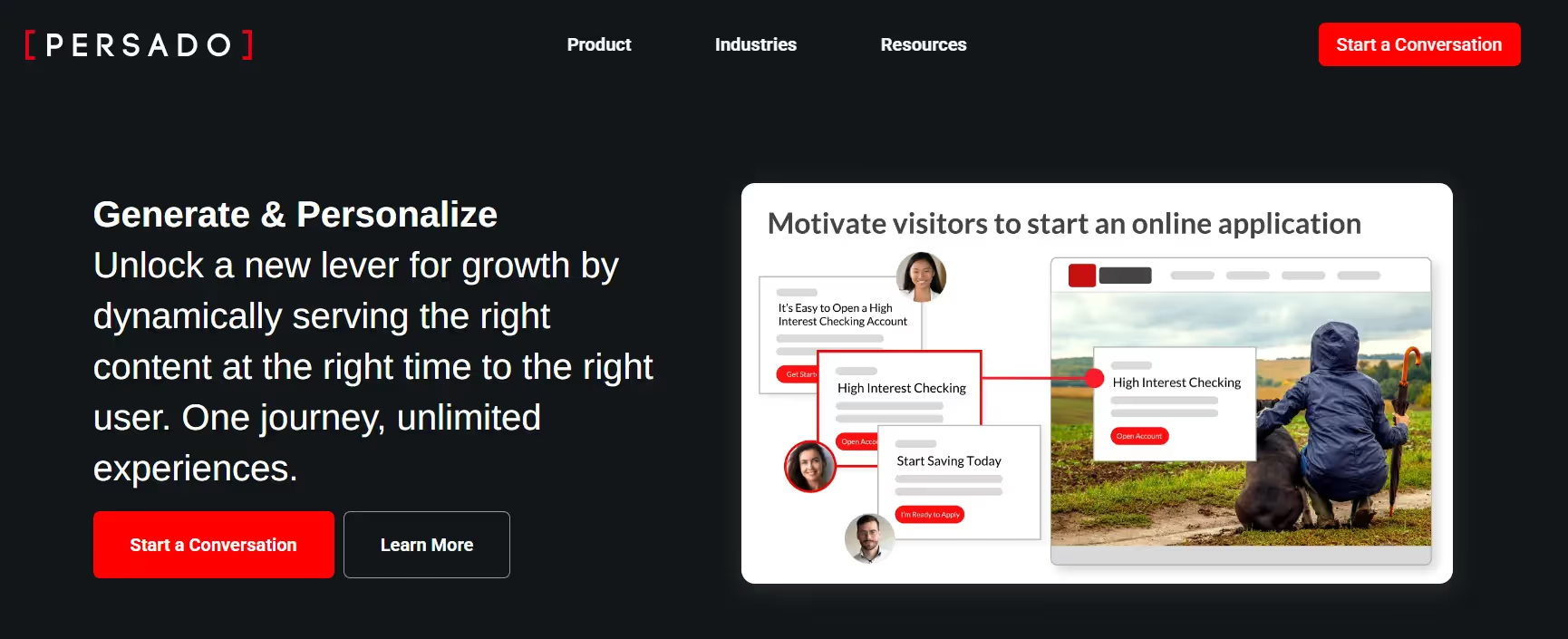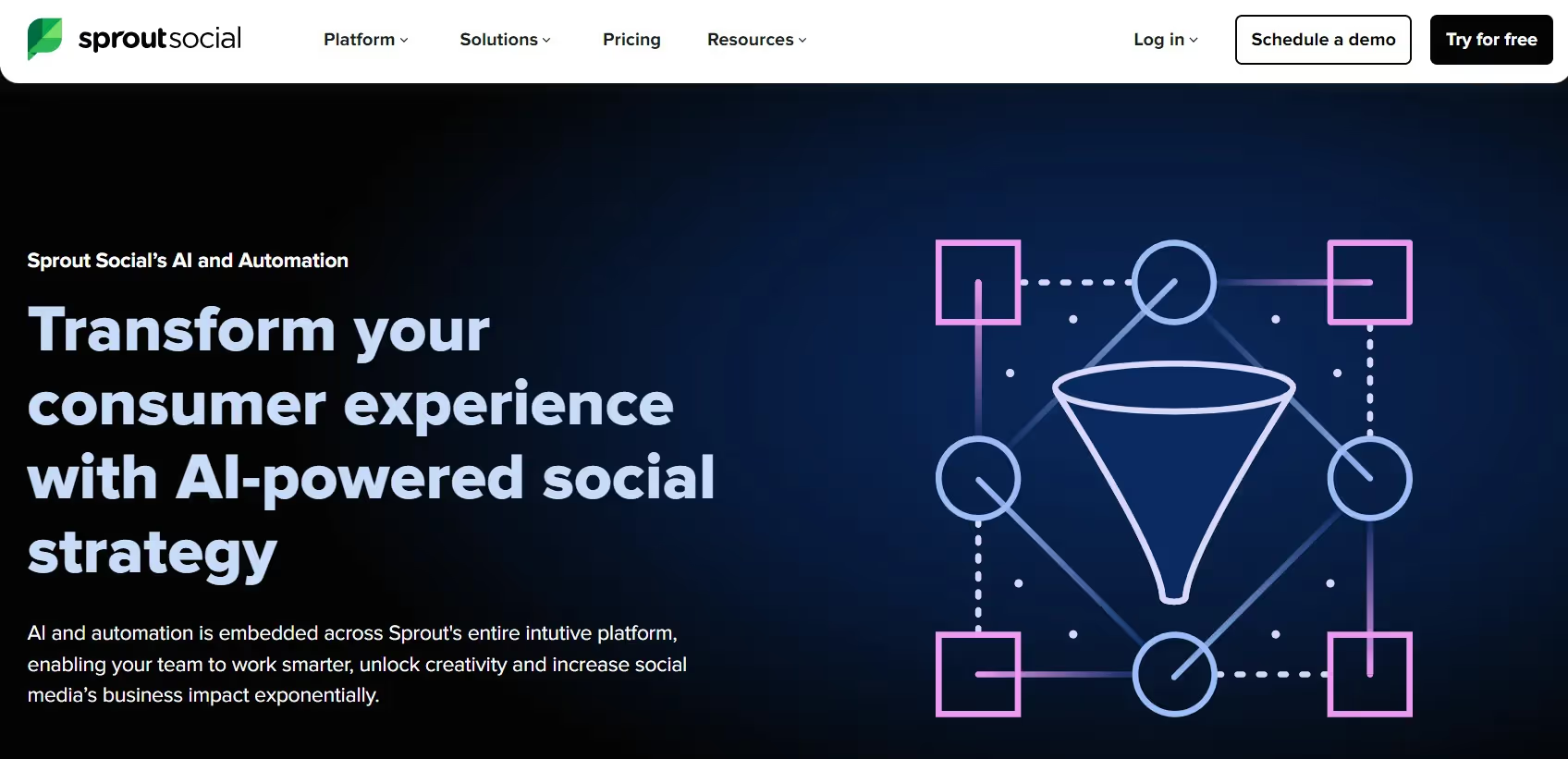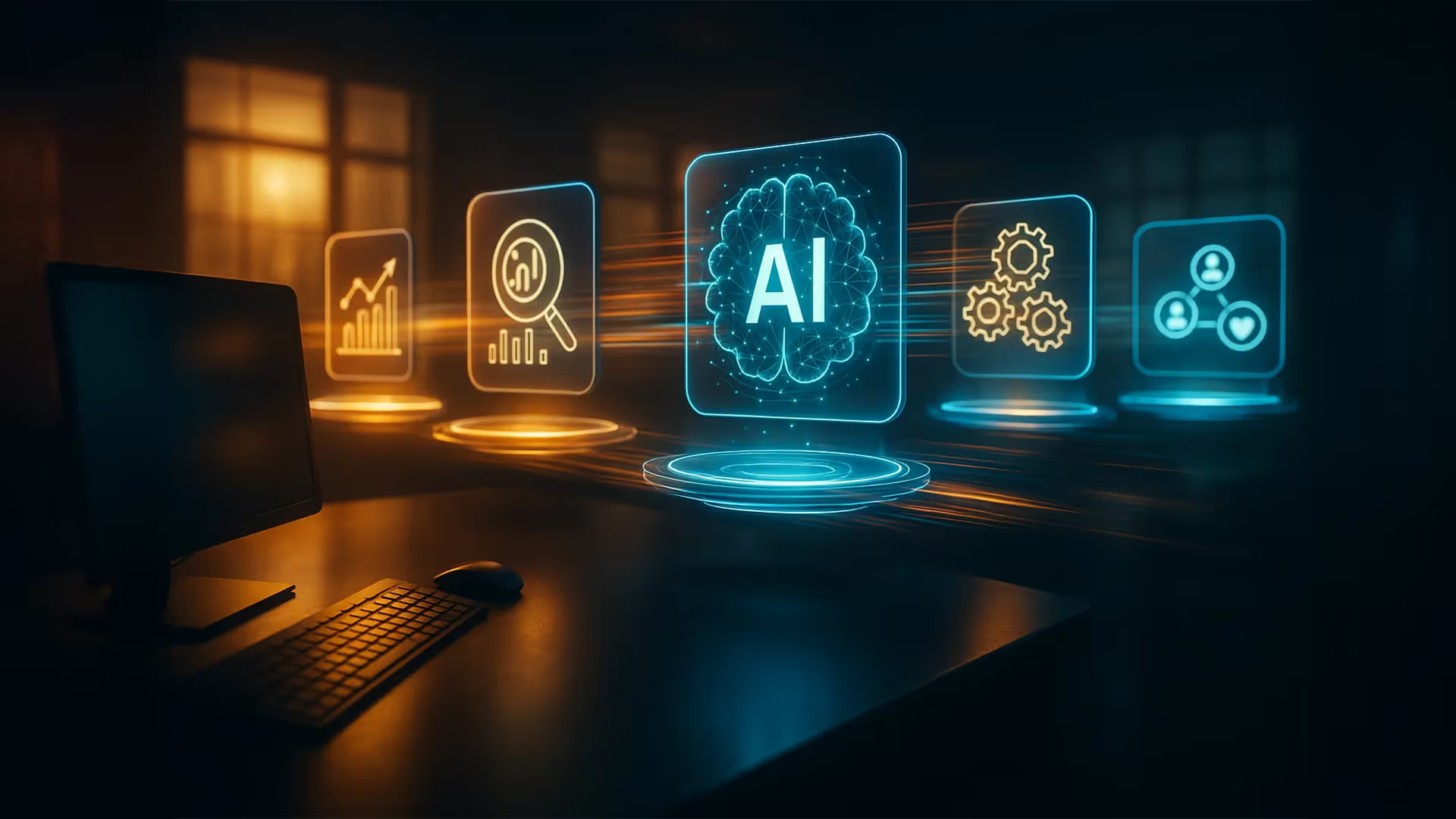While enterprise marketing teams talk mainly about metrics and automation features, there's something bigger happening in marketing that most people miss, and that’s how AI is completely changing the way marketing teams actually work together.
Here's what's really interesting: A 2023 McKinsey study found that companies using agentic AI saw their marketing leaders gain more time for strategic thinking. That's huge. Instead of just executing campaigns, marketers are becoming the architects of complex, multi-channel strategies that adapt in real time.
But picking the right AI platform isn't just about features and pricing. You need something that actually fits how your team works, your company culture, and how fast you want to innovate. A majority of companies want to adopt AI for AI’s sake, and don't spend enough time thinking about this fit - and it shows in their results.
We've analyzed 7 leading agentic AI marketing platforms that are changing how human creativity and artificial intelligence work together. Here's what you need to know about each one.
.avif)
1. Yarnit – Your Complete AI Marketing Team

Yarnit works like having an entire AI marketing team that actually understands your brand. Its Contextual Knowledge Hub learns your brand guidelines, competitive landscape, and messaging style, then applies this knowledge across every piece of content it creates. This isn't just automation - it's intelligent collaboration that maintains your brand voice while handling multiple marketing channels.
The platform breaks down the usual walls between brainstorming, optimizing, creating, and analyzing. Gartner research shows that an integrated approach can speed up time-to-market by 65% compared to juggling multiple tools.
Key Features
- Multi-agent AI system that works like specialized team members with different marketing skills
- Contextual Knowledge Hub that learns and applies your brand guidelines automatically
- "Ask Yarnit" interface where you can request complex campaigns using normal conversation
- Complete marketing toolkit covering content creation, SEO, social media scheduling, and analytics
- Team collaboration features with approval workflows
Pros
- Keeps your brand consistent - achieving the ideal alignment with established brand guidelines
- Cuts campaign creation time by up to 75%, turning weeks of work into days
- Replaces about 6 different marketing tools with one integrated platform
Cons
- Takes time to set up properly due to its comprehensive feature set
- Pricing is geared toward mid-size to large companies with established marketing operations
Best For
- Medium to large marketing teams that need AI help but can't sacrifice brand consistency
- B2B marketers running multi-channel campaigns who want to maintain strategic control
2. Albert.ai – Autonomous Campaign Architect

Albert.ai runs your campaigns automatically across social media, search, and email. It uses machine learning to constantly adjust audience targeting, budget allocation, and personalization based on what's working.
What sets Albert apart is its ability to make decisions without human input - it can shift budgets between channels, update ad creative, and refine targeting all on its own.
Key Features
- Full campaign automation that predicts performance and adjusts budgets in real-time
- Advanced audience targeting using over 200 behavioral and demographic factors
- Cross-channel coordination that tracks attribution and ROI across all touchpoints
Pros
- Typically reduces customer acquisition costs by 25-40%
- Handles complex campaigns with millions of customer interactions daily
Cons
- Steep learning curve with setup taking 45-60 days on average
- Premium pricing that puts it out of reach for smaller companies
Best For
- Large enterprises and agencies managing complex, multi-channel campaigns
- Marketing organizations with lots of data who want deep automation
3. HubSpot Breeze – All-in-One AI Marketing Suite

HubSpot's AI features work seamlessly with their popular CRM, offering content creation, social media management, lead scoring, and customer journey automation.
The real strength here is how everything connects. Your sales team can see exactly what marketing AI is doing, and the AI learns from both marketing interactions and sales conversations.
Key Features
- AI assistants for content creation, social management, and campaign optimization
- Predictive lead scoring with high accuracy for identifying likely conversions
- Customer journey automation that personalizes experiences based on real-time behavior
Pros
- Easy to use with CRM integration that eliminates data silos
- Flexible pricing that works for small businesses and larger companies
Cons
- Advanced AI features cost extra in premium tiers
- Limited customization for specialized industry needs
Best For
- Small to mid-market companies wanting integrated AI tools without technical complexity
- Teams focused on lead nurturing and sales-marketing alignment
4. Optimizely Opal – AI Agents Orchestrator

Optimizely Opal uses specialized AI agents for SEO, content creation, and campaign testing. Built on Google's Gemini models, it excels at maintaining brand consistency while personalizing content at scale. It's integrated with Optimizely's Digital Experience Platform.
The platform's strength is systematic experimentation - it can test multiple variations of campaigns simultaneously and learn what works best for different audience segments.
Key Features
- Specialized AI agents for content optimization, SEO analysis, and performance prediction
- Multi-agent workflows that coordinate different AI processes with minimal human intervention
- Enterprise integration with Optimizely's comprehensive platform ecosystem
Pros
- Excellent brand consistency while maintaining AI efficiency
- Automates 68% of routine marketing tasks according to internal data
Cons
- Designed for medium to large enterprises
- Complex implementation requiring specialized expertise
Best For
- Enterprises committed to brand-focused, data-driven marketing
- Organizations invested in continuous testing and personalization
5. Persado – AI-Powered Marketing Language Optimization

Persado focuses specifically on optimizing marketing language by analyzing emotional triggers that make people respond. Their AI determines the exact words, phrases, and emotional appeals that work best for different audience segments across various channels.
Key Features
- Motivation AI engine that maps emotional responses across 15 primary dimensions
- Channel-specific language optimization for email, web, social, and SMS
- Enterprise integration with major marketing platforms and detailed analytics
Pros
- Uses emotional intelligence to make marketing language more effective
- Consistently delivers higher performance improvements across industries
Cons
- Tech stack targeted at serving banks and financial institutions
- Needs substantial historical data to work effectively
Best For
- Large enterprises looking to optimize marketing language at scale
- Organizations with rich customer data and multi-channel messaging
6. Sprout Social – AI-Powered Social Media Manager

Sprout Social combines social media management with AI-powered listening, sentiment analysis, and optimized posting. What started as a social listening tool has become an all-in-one AI social media manager.
The platform excels at understanding social media conversations about your brand and automatically engaging when appropriate, while also optimizing when and what you post.
Key Features
- AI-powered social listening with sentiment analysis across 12 emotional dimensions
- Optimized publishing based on platform-specific performance data
- Integrated AI chatbots for customer support
Pros
- Comprehensive social media analytics with competitive benchmarking
- Simplifies cross-platform publishing and engagement
Cons
- Limited to social media marketing channels
- Advanced AI features require premium subscriptions
Best For
- Marketing teams heavily focused on social media engagement
- Organizations handling customer support through social channels
7. Zapier AI – AI Workflow Automation and Integration

Zapier AI connects different marketing tools and automates workflows between them using AI-powered triggers and smart error detection. Think of it as the glue that makes all your other marketing tools work together intelligently, without needing a developer to set it up.
Key Features
- Connects over 5,000 applications through AI-enhanced automation
- No-code workflow creation using natural language commands
- Automatically syncs lead data, triggers communications, and updates CRM records
Pros
- Extremely flexible and adaptable to different marketing tool stacks
- Allows non-technical marketers to build sophisticated automations
Cons
- Doesn't create content or manage campaigns directly
- Requires clear process definition to work effectively
Best For
- Marketing teams needing custom automation across different platforms
- Organizations with disconnected marketing systems requiring integration
Summary Comparison Chart
Conclusion
Agentic AI marketing platforms are changing how marketing works by automating complex tasks with smart, context-aware systems. Gartner's 2024 Marketing Technology Survey shows organizations using these tools see 49% impact on time efficiency.
For marketing teams looking to significantly improve efficiency, creative output, and campaign results in 2025 and beyond, choosing the right agentic AI marketing tool is one of the most important decisions you'll make. We recommend testing these platforms thoroughly, finding the one that fits your specific workflow needs, and implementing it systematically to get the most value from AI-enhanced marketing.
For hands-on AI marketing guidance and automation workflows specifically designed for B2B marketing organizations, visit Yarnit.










